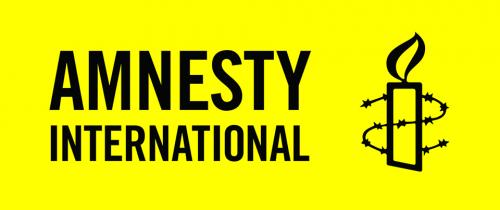
In the face of the COVID-19 pandemic, Colombia must urgently take appropriate measures to guarantee the rights of Indigenous Peoples, including their rights to health, water and food, Amnesty International said today. These measures must be coordinated with each Indigenous community, respecting their right to autonomy.
In the context of the health emergency declared because of COVID-19 and the “State of Economic, Social and Ecological Emergency” throughout the country, President Iván Duque stated that the authorities would deliver food and money to the most vulnerable people. The Ministry of the Interior is responsible for the delivery of food to Indigenous, Black, Raizal, Palenquero, Afro-Colombian and Roma communities; Community Action Boards; community leaders; and human rights defenders.
Indigenous Peoples in Colombia are on high alert. The government is implementing preventive measures for COVID-19 in the country without adequately guaranteeing their fundamental rights
However, three weeks after the quarantine was imposed, Indigenous communities in the departments of Casanare, Vichada and Meta informed Amnesty International that they have received no support from government authorities, despite their strict compliance with the isolation measures.
“Indigenous Peoples in Colombia are on high alert. The government is implementing preventive measures for COVID-19 in the country without adequately guaranteeing their fundamental rights. Historically they have not had access to health, water or food and in the context of this pandemic this situation is much more serious because they do not have the sanitary and social conditions to deal adequately with COVID-19,” said Fernanda Doz Costa, deputy Americas director at Amnesty International.
“The Colombian authorities must adopt additional social protection measures for those parts of population that are in a particularly vulnerable situation and are more likely to contract COVID-19. If the authorities do not take urgent action, Indigenous Peoples will find themselves at a crossroads facing two unthinkable paths: starve or die of the pandemic.”
To date, the National Indigenous Organization of Colombia (ONIC) has reported four confirmed cases of COVID-19 among the Yukpa Binational People and the Pasto People and one possible case among the Eperara Siapidara People. Access to health centres from most of the territories of these Indigenous Peoples is very expensive because of their remoteness and inaccessibility.
The Claretian Norman Pérez Bello Corporation told Amnesty International about the difficulties posed by the mandatory quarantine for the way of life and livelihoods of more than 3,000 Indigenous people in the departments of Casanare, Vichada and Meta. In these semi-nomadic communities, isolation measures exacerbate their situation of vulnerability because they cannot access their means of subsistence as they cannot move within their territories. Moreover, these are Indigenous Peoples believed to be on the brink of physical and cultural extinction.
If the authorities do not take urgent action, Indigenous Peoples will find themselves at a crossroads facing two unthinkable paths: starve or die of the pandemic
The level of risk is also a concern for Indigenous Peoples living in settlements on the outskirts of towns and cities, as they have no way of growing their food and survive by working in informal jobs, which they are currently unable to do. Many of these communities do not have access to clean water or hygiene products, making personal cleanliness to prevent COVID-19 infection impossible.
For more information or to arrange an interview, please contact Duncan Tucker: duncan.tucker@amnesty.org










Add new comment